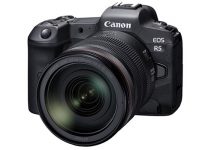We don’t talk about it enough, but understanding finances is probably the most important aspect of becoming an independent filmmaker.
As you grow your business you’ll hopefully find it can be a full-time gig and when that happens you’ll need to be smart with your money to make sure that you can continue to grow while keeping yourself and your family safe.
There are some basic guidelines that everyone should know and follow and filmmaker Luc Forsyth is here to talk about them. By having good financial habits you’ll find that you will be more focused on the work you enjoy and be more comfortable in your life.
1. Establish a Rainy Day Fund
Because film work can be incredibly unpredictable with jobs getting canceled, equipment having unfortunate technical issues, and more, it is important to set aside some money that you can use for emergencies.
It should be a completely separate fund that exists solely to help out in a pinch. Depending on your specific situation this could be anything from a few hundred bucks to thousands of dollars. You should fill this up before you start spending money on extra gear that you don’t necessarily need.
2. The 3 Month Rule
This is a general savings rule, but you should have enough savings built up to cover your living expenses for at least three months. You never know what might happen and you might end up out of work for an extended period of time.
This should be a priority to build up since it will help you stay in the game even during some periods where you have less work.
3. Lower Your Overheads
If you want to start saving you will likely need to tighten up your budget. Overhead refers to general expenses you need to live and work. Making decisions like moving in a roommate, cooking more instead of eating out, canceling some of your lesser-used subscriptions, etc.
Cutting back is a way to find that extra money you can throw into savings. It also can just help you keep more money for better investments in the future.
4. Investing
With the first three habits done you should hopefully be getting some extra money on top of that that you’ll want to invest. As most filmmakers are operating as an independent business you aren’t going to have the same benefits of regular full-time work with benefits.
You’ll still want to follow best practices and invest that money as the basic interest in bank accounts don’t keep up with inflation. This means that keeping your money in cash will result in it losing buying power over time. It’s super important that you can build up a fund that when you get older you can slow down a bit and start using this invested money to keep yourself going.
You should invest in stable funds, like ETFs, or bonds that will keep your money growing in the long term. And it means long term. You should be thinking about these investments in terms of decades and not get scared by the occasional dips or make use of it to purchase new equipment.
5. Register Your Business
As you get started you might not even think about becoming a formal business. What you might realize is that registering as a sole proprietor or whatever the entry-level registration in your area is you will be able to benefit in taxes. You’ll be able to write off certain expenses and save money to use for your business. It’s a smart move once you get big enough.
[source: Luc Forsyth]
Disclaimer: As an Amazon Associate partner and participant in B&H and Adorama Affiliate programmes, we earn a small comission from each purchase made through the affiliate links listed above at no additional cost to you.
Claim your copy of DAVINCI RESOLVE - SIMPLIFIED COURSE. Get Instant Access!




